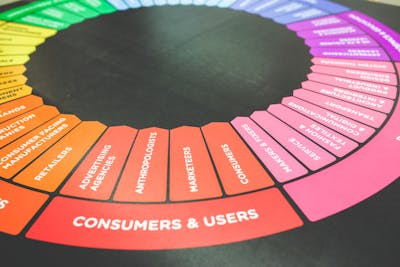Artificial Intelligence (AI) has exploded in the past decade, leaving an impression across disciplines. Now, it is not just about the machines; AI is all over the place, including our lifestyle. With this AI trend, the need for learned individuals who are proficient with AI has significantly increased. Whether it is in the tech or social spaces, there are many interesting jobs available for individuals who know their stuff in AI.
Prior to exploring these job prospects, it is beneficial to briefly inform yourself about AI master’s and PhD programs to gain valuable knowledge and readiness for more advanced positions in this evolving field.
In this post, we will explore the dynamic landscape of AI jobs, including insights into the most sought-after talents, common career roles, and sectors that use AI specialists.
Overview of AI Job Market
For individuals looking to make a difference in this rapidly developing sector, AI provides a wide range of job pathways. Let us explore some
Software Development

This field stands at the forefront of demand for AI professionals. In software development, experts craft, innovate, and maintain intelligent systems and applications. They make use of programming languages like Python, Javascript, SQL, and C++ to create formulas, set up AI models, and practically exploit the capabilities of agile tools and deep learning techniques. With the market still ripe with opportunity, budding talents have ample space to thrive and make their mark.
In Canada, the average yearly compensation for an entry role is somewhere around $82,000. Depending on how much value is placed on professionals, compensation in other nations may be very similar or very different.
Data Science

Data scientists play a crucial role in the digital world nowadays. These scientists extract valuable insights from data, decipher their meaning, and present them in a visually coherent manner to facilitate strategic decision-making. They achieve this with tools like statistical analysis, SQL, power BI, and data visualization techniques to uncover patterns, trends, and correlations in data, helping organizations derive actionable insights and optimize processes. Unlike software engineering, the field of data science is already teeming with talent. Nonetheless, individuals possessing exceptional skills still have ample opportunities to excel and make a significant impact in this dynamic domain.
Data scientists make around $93,000 annually. Seeing as exceptional talent in this field is in great demand, the salary can rise to $130,000.
Machine and Deep Learning (ML and DL)

Machine learning involves developing algorithms that can learn from data and make predictions, while deep learning involves training artificial neural networks with multiple layers to learn intricate patterns and representations directly from raw data. These two concepts require a thorough understanding of some engineering facets and computational resources.
Despite the seemingly complex feel of ML and DL, they are both relatable and impactful. In healthcare, these techniques are used for disease diagnosis and treatment planning. In finance, they power fraud detection systems and algorithmic trading strategies. In marketing, they enable personalized recommendations and targeted advertising campaigns. ML and DL have almost infinite potential for driving innovation and solving problems, which makes them essential tools in the current era of technology and data-driven decision-making.
This is evident in how much businesses pay to employ ML/DL professionals. Some exceptional individuals earn up to an average of $150,000 annually.
Robotics

Robotics engineers are the people who design extremely intelligent robots with autonomous thought and behavior. To train these robots to comprehend things, understand their environment, and even learn from their observations, they employ a variety of AI programmes. It is a thrilling field full of endless possibilities and chances to shine! Plus, with the robotics market still wide open, and its attractive average remuneration of $100,000 annually, interested individuals can still make their impact felt in the field.
AI Ethics and Bias Officer
As apprehensions grow about the ethics and fairness of AI systems, the role of AI ethics and bias analysts has taken center stage. These dedicated professionals assess AI algorithms and models to ensure they are fair, transparent, and accountable, in line with ethical standards and regulations. Individuals with expertise in this discipline can work for a variety of establishments, such as tech firms, government offices, the health sector, and other standard firms, where their knowledge and experience are essential to maintaining moral principles in the creation and application of AI.
An AI Ethics and Bias Officer earns between $100,000 and $120,000 on average annually.
AI Product Manager

AI product managers are pivotal in overseeing the development and deployment of AI-driven products. Their responsibilities include strategizing product vision, gathering requirements, and planning roadmaps. They collaborate with cross-functional teams, ensure user-friendly interfaces, manage data quality, monitor performance, and communicate updates to stakeholders. Additionally, they stay abreast of regulations, analyze markets, and drive product innovation.
Product managers have always earned well, be it in the AI space or other disciplines. An AI product manager can earn up to an average of $167,000 annually.
Computer Vision Engineer
Computer vision engineers, as their name suggests, specialize in analyzing and interpreting visual data from images and videos within the internet system. They use deep learning and image processing techniques to run several procedures on object detection, video editing and processing, and other visual concepts. Computer vision engineers in this field can find opportunities across many domains, from renowned establishments like Google and Microsoft to cutting-edge startups and research institutions, with an average annual salary of $121,000.
These are just a glimpse of the many fascinating job roles waiting in the AI field. With the continuous progress of AI, new opportunities are constantly emerging, offering exciting prospects for individuals who possess the right combination of skills and expertise.
In-Demand AI Skills and Qualifications
Beyond the AI jobs landscape, employers prioritize candidates with not only an academic achievement/certificate but also a combination of technical skills, domain knowledge, and soft skills. Depending on the role you are applying for, candidates must be proficient in the relevant programming languages. They should also excel in various data analytic and statistical skills and have reliable problem-solving abilities. The importance of soft skills comes into play for candidates looking into social areas such as healthcare, particularly effective communication and collaboration skills. Continuous learning and adaptability are essential traits in the rapidly evolving field of AI. Overall, employers seek well-rounded individuals capable of driving innovation and delivering value in AI-driven projects and initiatives.
Tips for Landing an AI Job
Securing employment in the AI sector necessitates not only a combination of skills but also certain calculated moves. The following advice will assist you in landing an AI job:
- Acquire relevant skills; both technical and soft.
- Build a strong portfolio
- Constantly upskill—enroll in online courses or workshops to expand your knowledge and skills.
- Try to gain relevant industry experience by looking for internships, co-op programmes, or entry-level positions in AI companies or research labs to gain hands-on experience.
- Network with professionals in the AI industry and attend industry events, conferences, and meetups to expand your connections and learn about job opportunities.
- Customize your resume and cover letter to match the role you are applying for
- Prepare for interviews by researching the company and understanding its products, services, and AI initiatives to demonstrate your interest and enthusiasm.
- Continue learning and upgrading your skills through online courses, workshops, and self-study to stay competitive in the job market.
You can improve your chances of getting a fulfilling AI role by following these tips
Related Content
Artificial intelligence in nursing
Artificial intelligence in insurance
Artificial intelligence radiology
Engineering applications of artificial intelligence

